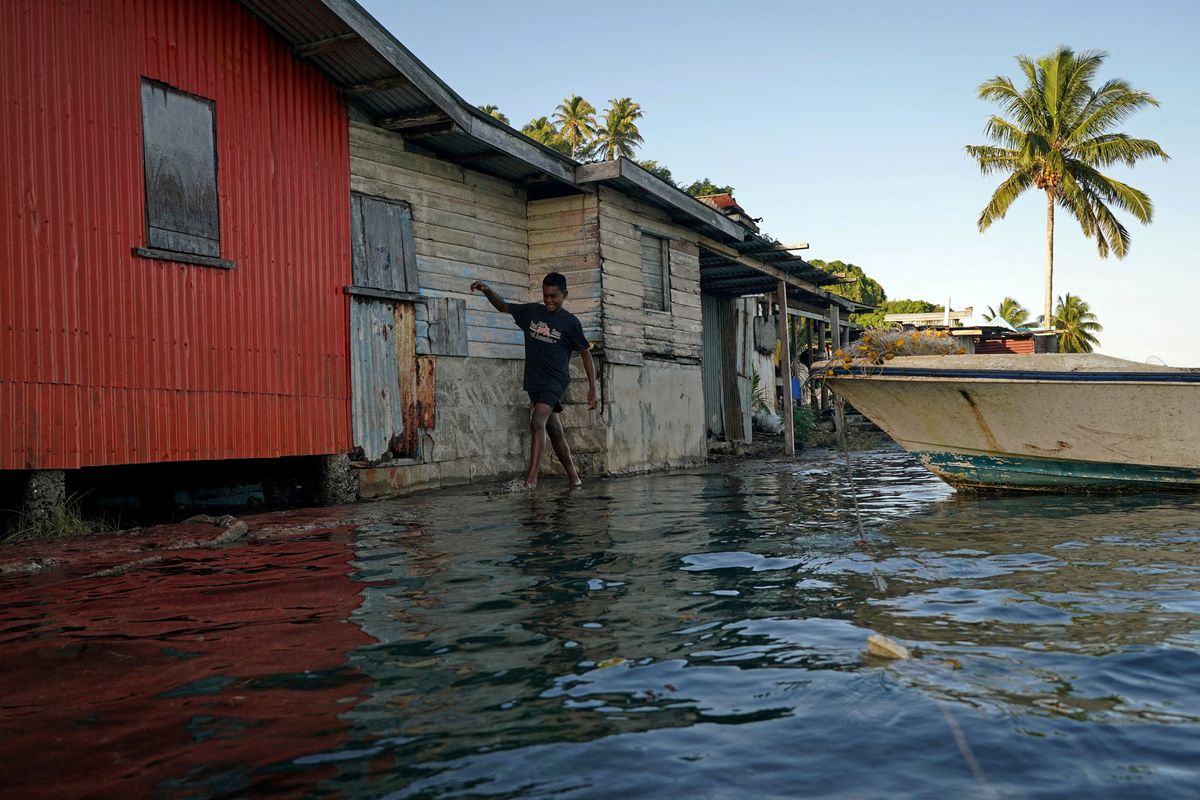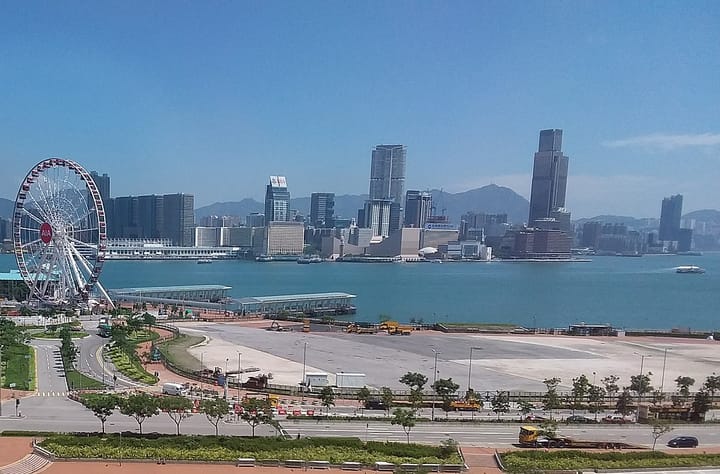International court hears ocean law case from small island countries
Small island countries like Tuvalu and Antigua and Barbuda are at risk of completely disappearing because of ocean changes due to climate change.

A few minutes every morning is all you need.
Stay up to date on the world's Headlines and Human Stories. It's fun, it's factual, it's fluff-free.
The backstory: Small island countries like Tuvalu and Antigua and Barbuda are at risk of completely disappearing because of ocean changes due to climate change. With more extreme coastal storms (like hurricanes, cyclones and tropical storms) and sea levels rising, these countries are experiencing the harsh results of climate change in ways that threaten to completely wipe them out.
They’ve already been suffering, depending on their formation and location. Volcanic islands in the Caribbean are seeing infrastructure damage as stronger hurricanes happen more often. Low-lying atolls, which are more common in the Pacific, are giving up landmass from erosion and flooding, and they’re also losing fresh water for crops and drinking as salt water floods in. Tuvalu and Vanuatu are at risk of being completely underwater in the future because they lie so low.
More recently: In 2021, just before COP26, Tuvalu and Antigua and Barbuda registered with the UN to establish the Commission of Small Island States on Climate Change and International Law (COSIS). Now, there are eight countries included in this commission – Antigua and Barbuda, Tuvalu, Palau, Niue, Vanuatu, St. Lucia, St. Vincent and the Grenadines and St. Kitts and Nevis. But membership is open to any member of the Alliance of Small Island States (AOSIS), which contains dozens of member states. The mission behind COSIS is to “take collective action to protect and preserve the climate system” by promoting, developing and applying rules and principles of international law when it comes to climate change.
The development: COSIS is taking high-emitting greenhouse gas countries to the International Tribunal for the Law of the Sea (ITLOS) in the first climate justice case focused on the ocean, with opening arguments beginning on Monday. COSIS is arguing that countries must protect the marine environment under the UN’s Law of the Sea. With this case, ITLOS will decide if carbon emissions that go into and affect the world’s oceans (which are major carbon sinks) can be considered marine pollution. It would also be looking into what that would mean for setting standards on what countries have to do to protect the ocean, then.
The island states are hoping that steep emissions will be labeled as pollution that violates international law. If the states win the case, they could be looking at a lot of money in damages, which they can use to deal with the effects of climate change and to protect against future fallout. While ITLOS can’t actually deliver a legally binding decision, it can make an advisory opinion, which would help guide countries in making future climate laws. This decision could also help COSIS negotiate at COP28 later this year.
Key comments:
“Without rapid and ambitious action, climate change may prevent my children and grandchildren from living on the island of their ancestors, the island that we call home. We cannot remain silent in the face of such injustice,” said Gaston Browne, Prime Minister of Antigua and Barbuda. “We have come before this Tribunal in the belief that international law must play a central role in addressing the catastrophe that we witness unfolding before our eyes.”
“The islands could hold major emitters of greenhouse gasses responsible for damage by their failure to implement the Paris climate accord,” said Alan Boyle, an emeritus professor of international law at the University of Edinburgh, to The New York Times.
“What’s the difference between having a toxic chimney spewing across a border to carbon dioxide emissions?” asked Payam Akhavan, lead counsel and chair of COSIS’s committee of legal experts. “Some of these states will become uninhabitable in a generation, and many will be submerged under the sea. This is an attempt to use all the tools available to force major polluters to change course while they still can.”




Comments ()